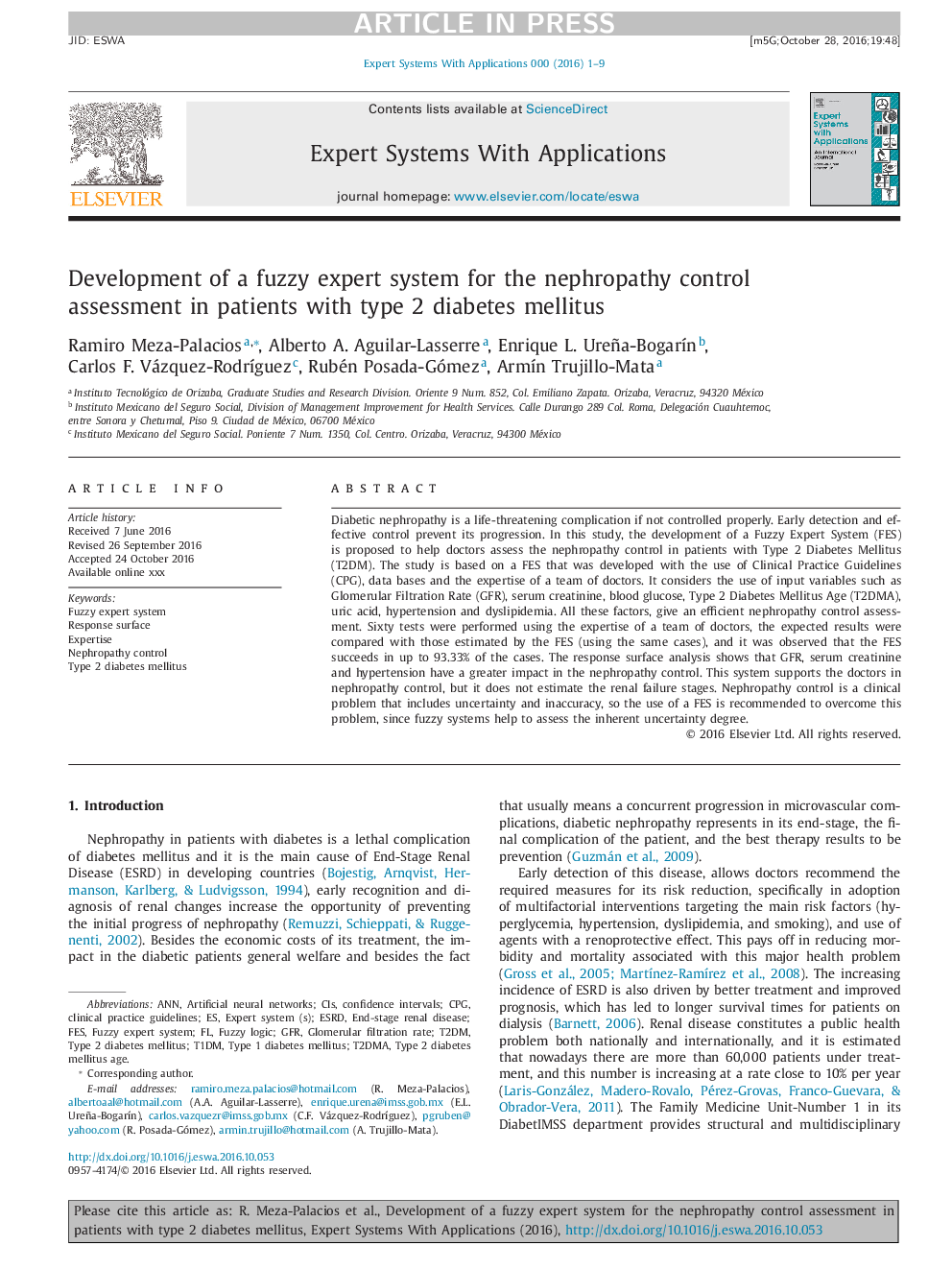| Article ID | Journal | Published Year | Pages | File Type |
|---|---|---|---|---|
| 4943438 | Expert Systems with Applications | 2017 | 9 Pages |
Abstract
Diabetic nephropathy is a life-threatening complication if not controlled properly. Early detection and effective control prevent its progression. In this study, the development of a Fuzzy Expert System (FES) is proposed to help doctors assess the nephropathy control in patients with Type 2 Diabetes Mellitus (T2DM). The study is based on a FES that was developed with the use of Clinical Practice Guidelines (CPG), data bases and the expertise of a team of doctors. It considers the use of input variables such as Glomerular Filtration Rate (GFR), serum creatinine, blood glucose, Type 2 Diabetes Mellitus Age (T2DMA), uric acid, hypertension and dyslipidemia. All these factors, give an efficient nephropathy control assessment. Sixty tests were performed using the expertise of a team of doctors, the expected results were compared with those estimated by the FES (using the same cases), and it was observed that the FES succeeds in up to 93.33% of the cases. The response surface analysis shows that GFR, serum creatinine and hypertension have a greater impact in the nephropathy control. This system supports the doctors in nephropathy control, but it does not estimate the renal failure stages. Nephropathy control is a clinical problem that includes uncertainty and inaccuracy, so the use of a FES is recommended to overcome this problem, since fuzzy systems help to assess the inherent uncertainty degree.
Keywords
Related Topics
Physical Sciences and Engineering
Computer Science
Artificial Intelligence
Authors
Ramiro Meza-Palacios, Alberto A. Aguilar-Lasserre, Enrique L. Ureña-BogarÃn, Carlos F. Vázquez-RodrÃguez, Rubén Posada-Gómez, ArmÃn Trujillo-Mata,
